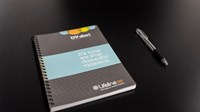The Hidden Cost of Control: Understanding Financial Abuse
Published on 3rd of October 2025
Financial abuse is one of the most common but least recognised forms of domestic and family violence. While many people understand obvious behaviours like denying access to money or refusing to contribute financially, fewer recognise the more subtle tactics — such as controlling bank accounts, incurring debt in someone else’s name, or delaying property settlements after separation.
When financial abuse goes unrecognised, it can escalate unchecked, leaving lasting impacts on a person’s safety, wellbeing, and independence.
What is Financial Abuse?
Financial abuse, sometimes referred to as economic abuse, is a form of domestic and family violence. It involves a pattern of control, exploitation or sabotage of money and economic resources, threatening a person’s ability to be financially secure, independent, and self-sufficient (DSS 2022).
According to the Australian Institute of Health and Welfare (AIHW), financial abuse can occur during a relationship or after separation. It is often used as a tactic of coercive control, deliberately reducing someone’s autonomy and making it harder to leave an unsafe situation.
What Do the Numbers Show?
The 2021–22 Personal Safety Survey (ABS) asked Australians whether a current or former partner had:
- Controlled or tried to control access to household money
- Prevented them from working or studying
- Forced them to deposit income into their partner’s account
- Accrued significant debt in their name
- Delayed property settlement after separation
- Or refused to contribute financially to the household
The findings are sobering:
- 1 in 6 women (16%) and 1 in 13 men (7.8%) have experienced financial abuse by a partner since age 15 (ABS, 2023).
- Women are nearly twice as likely as men to experience financial abuse.
- The impacts extend beyond the relationship, affecting housing stability, employment, and long-term financial security.
What Does Financial Abuse Look Like?
Financial abuse can take many forms, including:
- Denying someone access to money, even their own
- Preventing someone from earning an income
- Making significant financial decisions without consultation
- Stealing money or possessions
- Selling assets without consent
- Incurring debt in someone’s name
- Refusing to pay child support or deliberately delaying property settlement.
Some behaviours may appear subtle, such as limiting access to household accounts, but together they form a deliberate pattern of control.
Why is This So Important?
Financial abuse is not just about money. Like all forms of domestic and family violence, it’s about power and control. By restricting financial independence, people who use violence can trap others in unsafe relationships, making it harder to leave and rebuild.
If left unchallenged, financial abuse entrenches cycles of disadvantage and increases vulnerability to other forms of harm, including homelessness.
Recognising these behaviours early, especially the less obvious ones, is critical to prevention and safety.
National Legal Context & Action
Financial abuse is increasingly recognised in policy and law:
- Under the National Plan to End Violence against Women and Children 2022–2032, addressing financial abuse is a key priority.
- In Victoria, coercive control reforms explicitly include financial abuse recognised as a form of DFV in civil protection order schemes and in the Family Law Act.
(https://www.parliament.vic.gov.au/news/justice/coercive-control
https://www.respectvictoria.vic.gov.au/prevention/recognise-violence/coercive-control-non-physical-violence) - Banking and financial institutions are strengthening protections against coerced debt and unauthorised transactions.
(https://cwes.org.au/wp-content/uploads/2023/02/Economic-abuse-and-the-law-.pdf)
But barriers remain. Many specialist services often have long waiting lists, and access can be even more limited in rural and regional areas. Financial abuse often intersects with other forms of disadvantage, including racism, ableism and systemic barriers.
Want to Learn More?
Financial abuse can happen to anyone - but with the right training, we can all play a role in recognising it and responding safely.
If you work in health, community, education or frontline services, DV-alert’s nationally recognised training can help you build the skills to identify and respond to financial abuse as part of family violence.
Let’s ensure financial abuse is recognised for what it is: a serious form of family violence that no one should have to endure.



